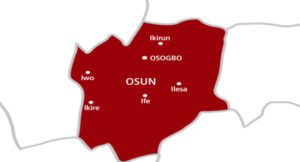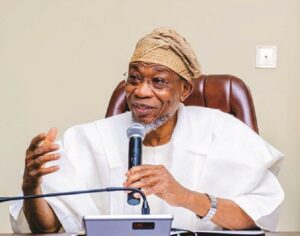


Dangote Refinery: Finally, a solution Nigeria can’t import!
By Abiodun Alade
If there’s one burning question on the minds of Nigerians these days, it’s this: why are we paying between N1,000 and N1,500 for a litre of Premium Motor Spirit (PMS)?
Sadly, the very people who should be explaining this strange new reality have decided to stay tight-lipped with heads buried in the sand like ostriches. Meanwhile, those who have been milking the country’s oil wealth while keeping its four refineries comatose – have been busy peddling a lot of dubious narratives to discredit Dangote Petroleum Refinery. Apparently, some people would rather pull the wool over our eyes than let us see the real picture.
Let’s get one thing straight: the Dangote Refinery is not to blame for the price of PMS in Nigeria. In fact, without this refinery, we might be staring at petrol prices as high as N2,500 a litre – just like the recent strident gloomy predictions from oil marketers and analysts.
The real culprits in this price mess are the oil cabals and their cosy friends at the Nigerian National Petroleum Corporation Limited (NNPCL). These folks are busy trying to spin the tale that locally refined products are somehow more expensive than imported fuel, which, in their view, justifies the ongoing need to import fuel and keep those highly subsidised prices intact. Let’s pause for a moment and ask: since when did importing fuel become a better deal than refining it locally? That’s like paying extra for a loaf of bread because someone else baked it in their oven… miles away.
As with all global refineries, the Dangote Petroleum Refinery doesn’t set pump prices for petroleum products. Those decisions, much to the chagrin of the refinery’s critics, are based on market dynamics, government policies, and the influence of some very powerful individuals. The real reason for the recent hike in petrol prices is a simple equation: subsidy removal plus the floating of the Naira.
As recently as August, reports showed that the NNPCL was selling petrol at half the actual cost of imported fuel. Officially, the pump price was N568 per litre, but the true landing cost was a shocking N1,100 per litre. So, the NNPC was generously “subsidising” fuel imports by almost N600 per litre – subsidising, that is, until the entire scheme became too expensive to sustain. So, naturally, prices were hiked to N855 per litre.
And here’s the kicker: the Federal Government racked up an eye-watering N5.1 trillion in under-recovery and energy security expenses on fuel imports in 2023. Guess where that money came from? The same pockets that should have been filled with healthcare, education, and infrastructure funds. Instead, we were left with an empty wallet and a bill that was too big to ignore.
Meanwhile, on the other side of the world, Guyana – the third-smallest sovereign state in the world, is generously handing out $100,000 cash grants to its adult citizens as part of its oil boom, while Nigeria – the most populous black nation on Earth – is amassing foreign debt to pay for fuel subsidies.
If the pricing template used to offset imported petrol costs was applied to products from Dangote Refinery, the price of petrol could be much lower than what we’re seeing today – possibly as low as N500 per litre. That’s right, N500. But of course, the government, apparently, has decided not to restore the subsidies. After all, what was once intended as relief for the people has now turned into a syphoning operation.
According to a report by The Guardian Newspapers in October, oil marketers are making an extra 48 percent profit by smuggling petrol out of Nigeria to neighbouring countries, where the price is far higher. In Mali, the price is N2,266 per litre, in Côte d’Ivoire it’s N2,289, in Cameroon N2,196, and in Benin Republic N1,779. No surprises there, then, that daily PMS consumption in Nigeria keeps rising. And if the oil cabals get their way, we’ll be looking at a whopping 103 million litres per day – just like we saw in 2022.
The government is, understandably, trying to keep local prices aligned with those in neighbouring countries to curb smuggling. But honestly, until the greedy cabals are shown the red card and we finally declare that “business as usual” is over, the government strategy is dead on arrival.
While President Bola Ahmed Tinubu’s Naira-for-Crude initiative is certainly a step in the right direction, the floating of the Naira is still keeping petrol prices stubbornly high. Why? Crude oil is priced in dollars, so domestic refiners, including the Dangote Refinery, are still paying the exact dollar amount for crude, but now in Naira. And when you convert dollar to Naira, it’s expensive. For instance, a mere $90 per barrel now translates to over N150,000.
Currently, a litre of Nigerian crude costs between N890 and N910, before factoring in refining and logistics costs. So, what’s the magic number? How much can a refinery – domestic or foreign – realistically sell a litre of refined petrol for?



